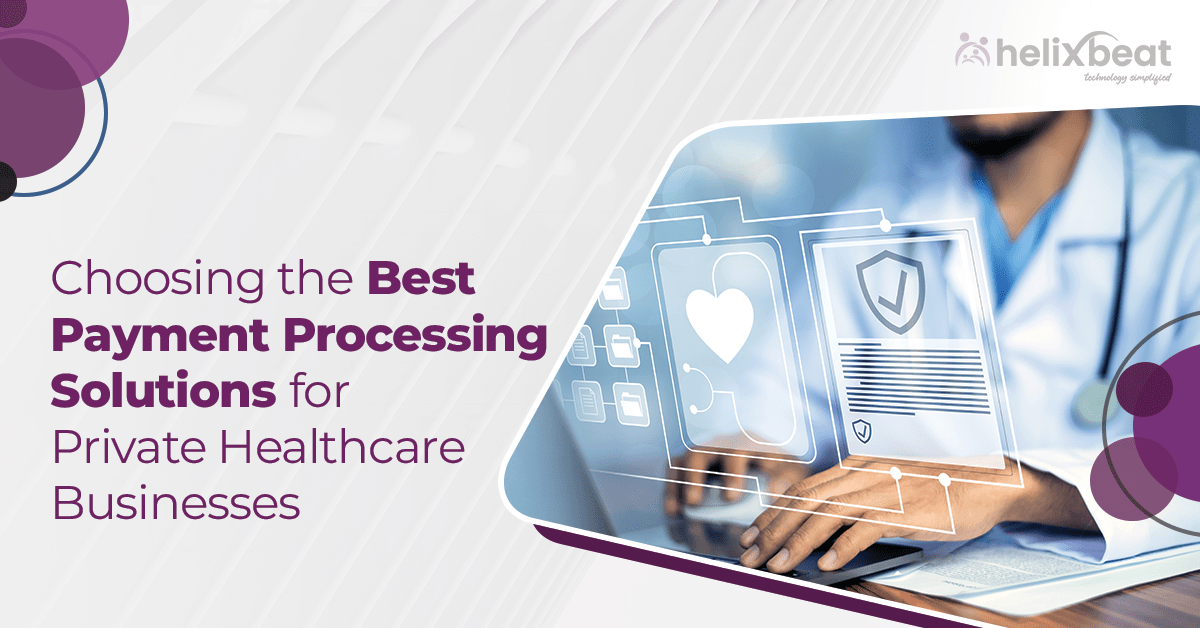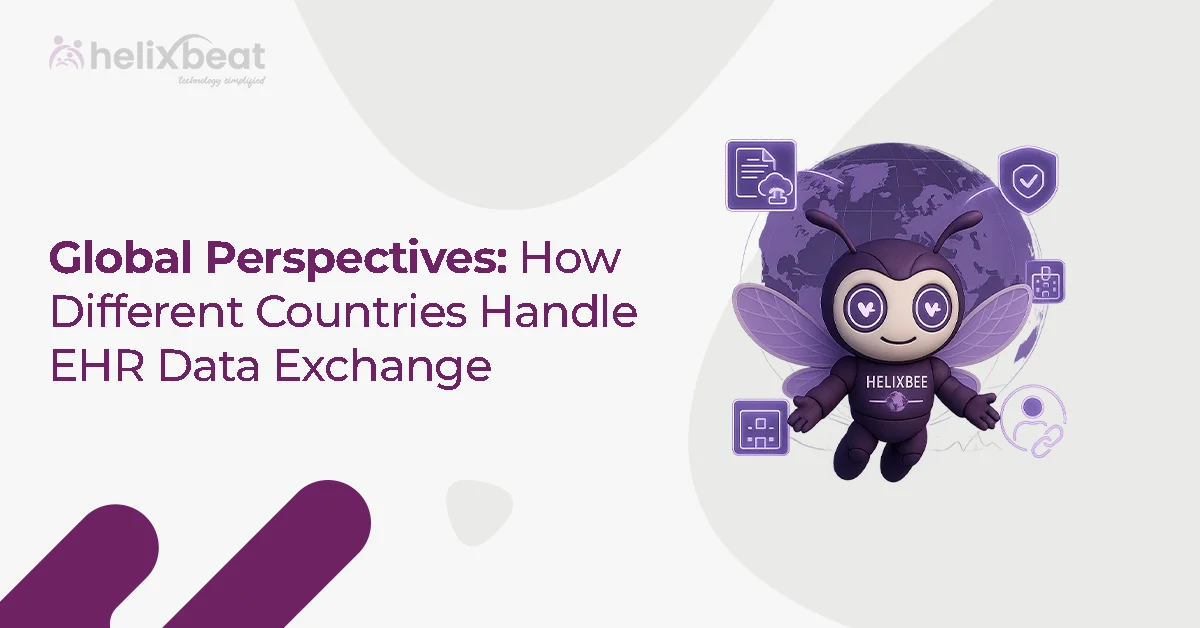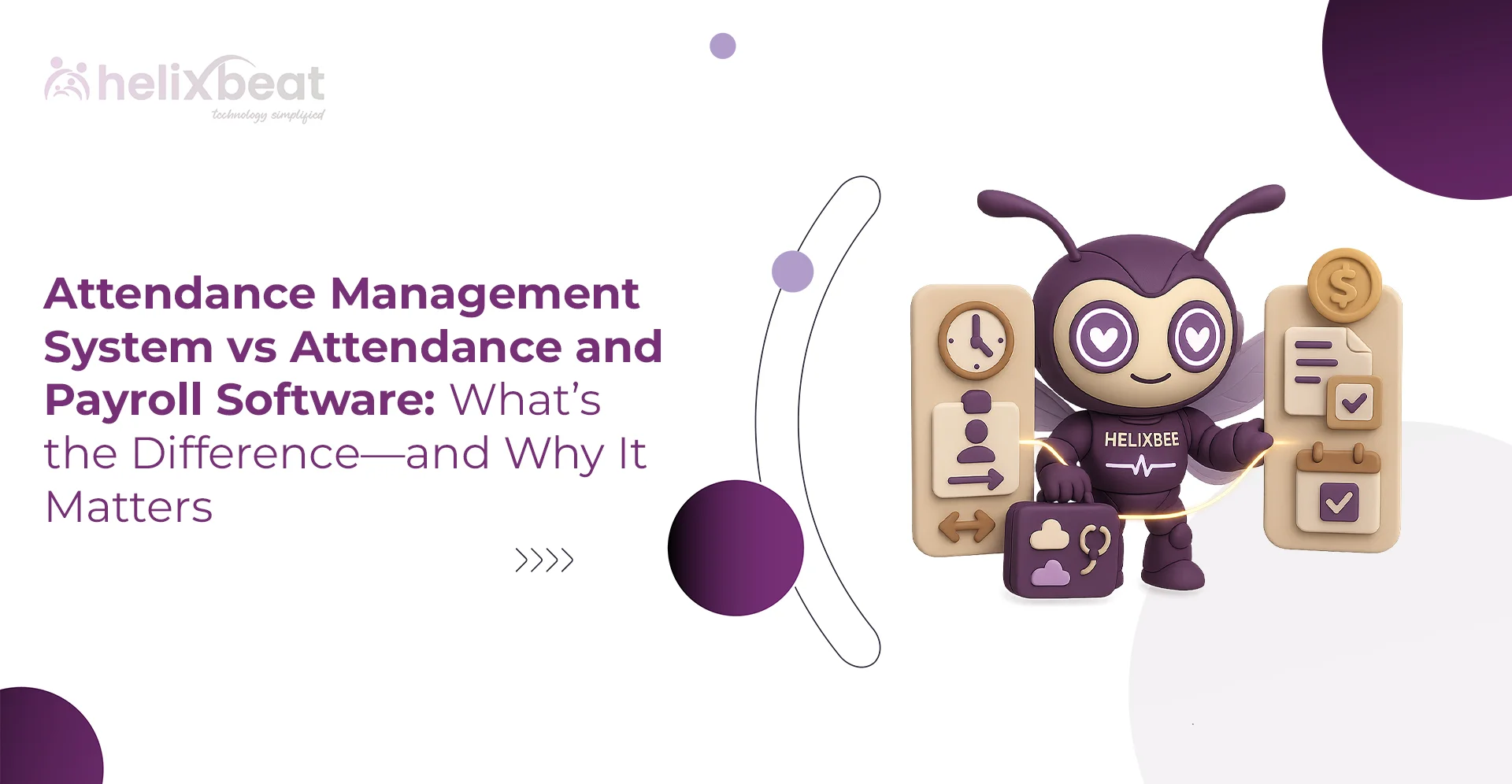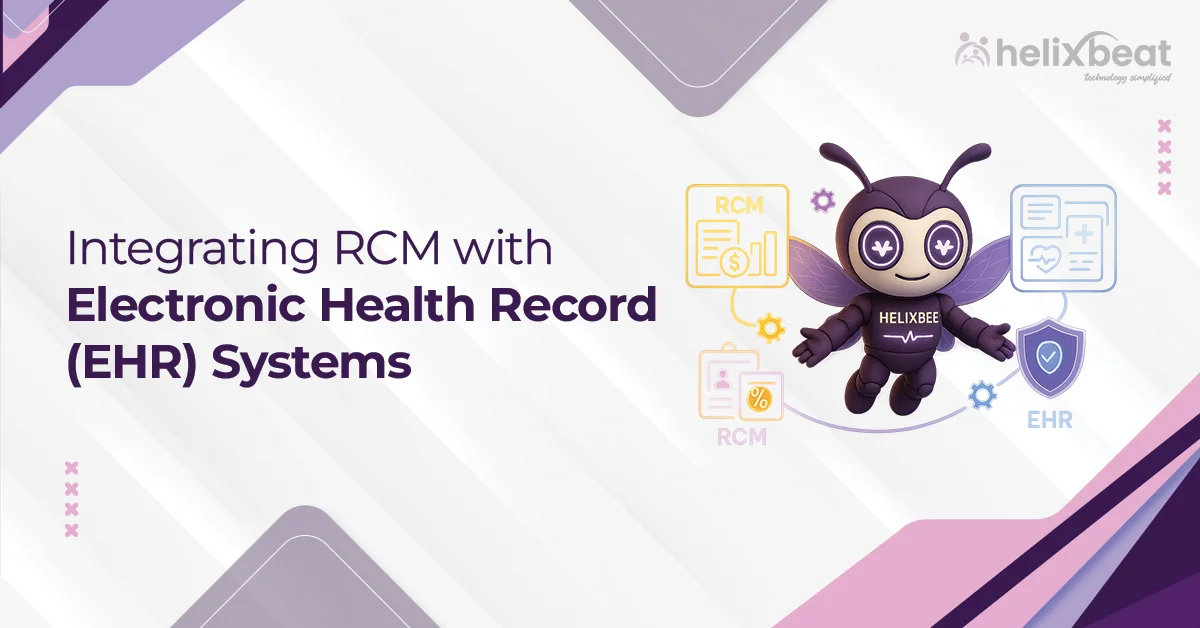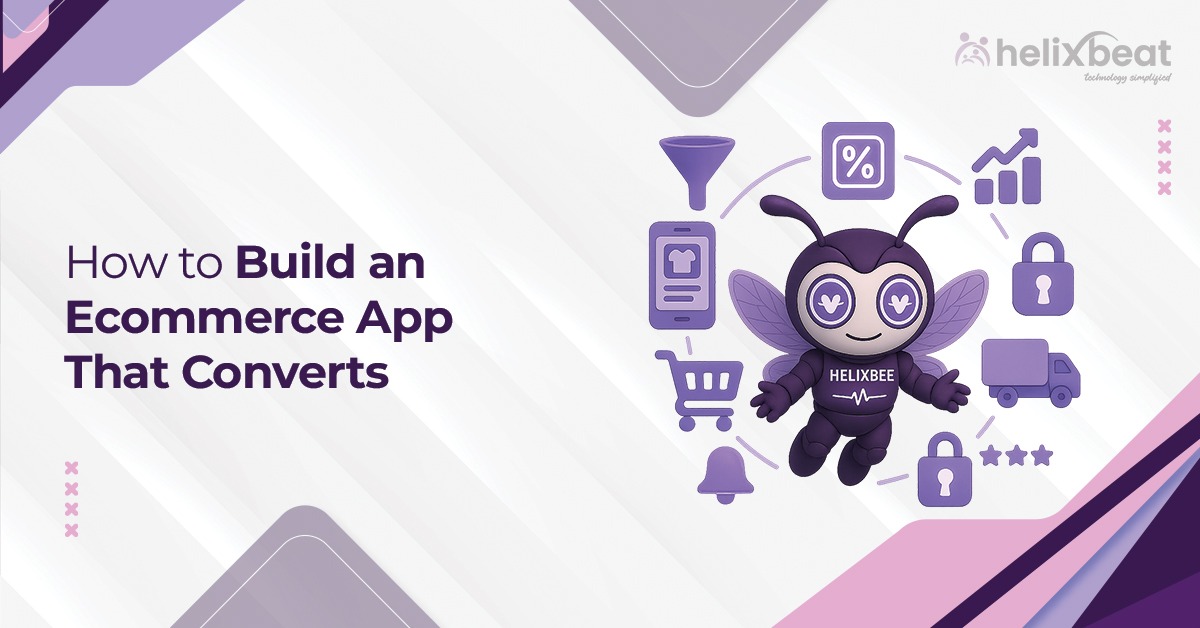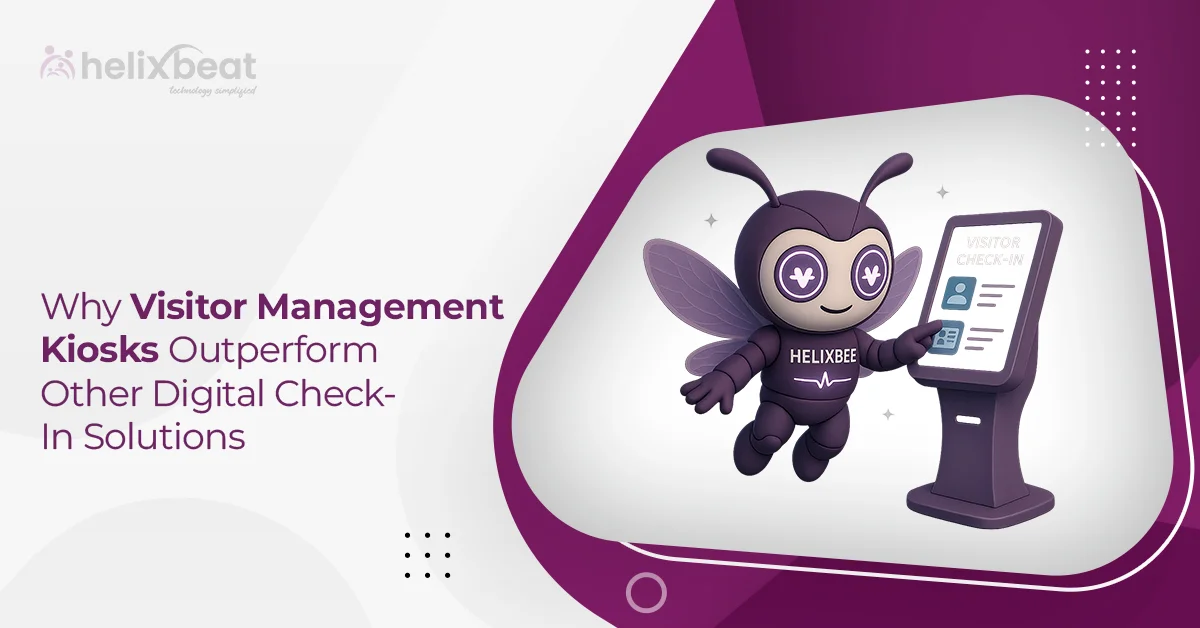In recent years, the demand for Private Healthcare and Wellbeing services has skyrocketed. A 2023 report by Statista revealed that over 40% of patients in developed countries now prefer private healthcare for faster appointments, personalized care, and access to advanced treatments. But while healthcare evolves, so do patient expectations—especially when it comes to convenience and digital experiences.
Imagine a patient who just finished a wellness session or a therapy appointment. They’re feeling better, more relaxed—and then they face a clunky, outdated payment process. That single moment can impact their perception of the entire experience. In an industry built on trust and comfort, secure and seamless payment processing is no longer optional; it’s essential. Whether you run a wellness center, dental clinic, or therapy practice, modernizing your payment system can make a lasting difference in how clients experience your care. This guide explores the best payment solutions tailored for Private Healthcare and Wellbeing businesses.
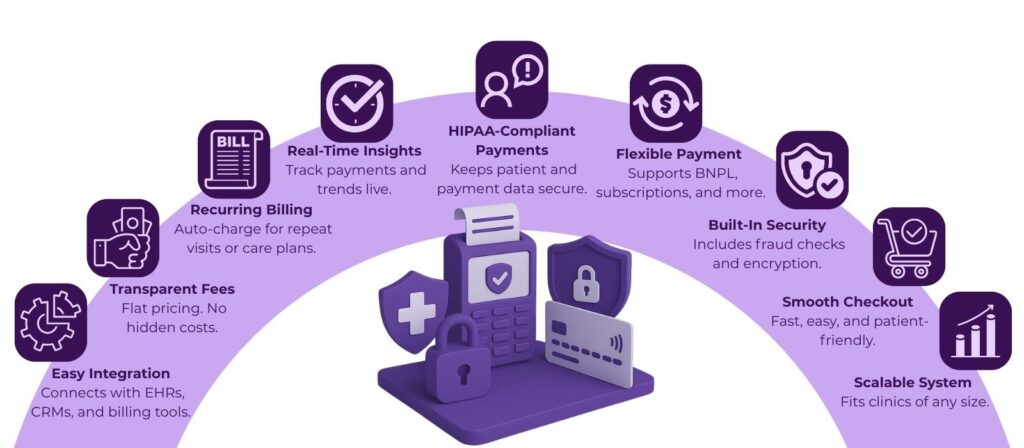
Table of Contents
Why Payment Processing Is a Critical Component in Private Healthcare
The Private Healthcare and Wellbeing industry is unique. Unlike public healthcare, where the government covers costs, private providers rely directly on patients for payment. This brings both flexibility and complexity.
Here’s why choosing the right payment system matters:
1. You’re Not Just Selling a Service—You’re Selling Trust
Private healthcare clients are not just paying for treatment; they’re paying for peace of mind, quality time, and expert attention. If your payment process feels outdated or insecure, it can damage the trust you’ve spent so long building.
Managing sensitive financial and health-related information in a way that complies with regulations and reassures patients.
2. Payments Are No Longer One-Size-Fits-All
Modern patients expect choice and convenience. Some prefer contactless tap-and-go, others want online portals or digital invoices. And with rising treatment costs, flexible financing options like Buy Now, Pay Later (BNPL) are becoming popular in Private Healthcare and Wellbeing clinics.
Offering diverse, secure payment options without overwhelming administrative staff or compromising compliance.
3. HIPAA Compliance Is Non-Negotiable
Unlike other industries, private healthcare providers in the U.S. must comply with HIPAA (Health Insurance Portability and Accountability Act). This means every aspect of the payment experience must safeguard protected health information (PHI).
Challenge for Providers: Finding a payment solution that integrates with clinical systems while ensuring HIPAA compliance—because one slip-up can lead to legal penalties and loss of patient trust.
Key Features to Look For in a Payment Processing Solution
When choosing a payment system for your Private Healthcare and Wellbeing business, focus on tools and platforms that align with your operational needs and patient expectations.
1. HIPAA-Compliant Payment Security
Any payment solution must offer strong encryption, secure data storage, and access controls that meet HIPAA guidelines. This is vital when storing patient names, treatment details, or even insurance information linked to transactions.
How Paynova Helps: Paynova offers end-to-end HIPAA-compliant processing, ensuring all patient and payment data is securely handled and stored.
2. Omnichannel Payment Support
Your patients may pay in person, over the phone, via mobile, or through your website. Supporting all these channels—without needing separate systems—is crucial for a smooth experience.
Why It Matters in Private Healthcare: A therapist may need to send an invoice post-session; a wellness clinic might accept walk-ins and subscriptions; a dental office may require upfront deposits. Each scenario requires flexible payment options.
3. Recurring Billing for Ongoing Care
For practices that offer long-term treatment plans—such as mental health therapy, fertility support, or wellness coaching—recurring billing is essential. Patients appreciate the ease of automatic payments, and providers benefit from consistent cash flow.
Challenge Solved: Reduces admin time spent chasing payments and allows patients to focus on healing, not invoices.
4. Transparent Pricing and Reporting
Hidden transaction fees and unclear charges can eat into your profit margins. A good system will offer:
- Flat-rate or predictable pricing
- Real-time transaction dashboards
- Clear reconciliation reports
Many small Private Healthcare and Wellbeing clinics get locked into long-term contracts with providers who don’t understand their needs or volume.
How Paynova Helps: Clear, transparent pricing with no hidden fees, and robust reporting tools that help you track financial performance effortlessly.
5. Seamless Integration with Healthcare Software
Your payment system should integrate with:
- Electronic Health Records (EHR)
- Practice management software
- CRM tools for patient follow-upS
- Accounting platforms like QuickBooks
Why It Matters: Manual entry increases human error and staff burnout. Integration saves time and ensures accuracy.
Advantage and Disadvantage of Private Healthcare in the Payment Context
The advantage and disadvantage of private healthcare becomes especially apparent when you look at how payments are handled.
Advantages of Private Healthcare Payment Systems:
- Faster Service with Streamlined Checkout
Payment is instant, meaning less waiting time and quicker treatment access.
Patients can book and pay ahead online, improving clinic flow.
- Flexibility and Customization
Offer personalized payment plans, packages, or subscriptions.
Tailor payment portals with your brand and care messaging.
- Greater Financial Control
You control your fees, discounts, and service charges.
Easily adjust offerings based on seasonality or demand.
- Increased Revenue Opportunities
Add upsells like wellness packages, aftercare, or family plans.
Accept financing options to make high-ticket procedures more accessible.
- Patient-Centric Experience
Payment is part of care—make it warm, respectful, and easy.
Disadvantages of Private Healthcare Payment Systems:
- Higher Cost of Operations
You bear all costs related to tech, training, payment processing fees, and compliance.
- Complexity of Multiple Payment Channels
Offering online, mobile, and in-person payments can strain resources if not integrated properly.
- Security Responsibilities
You are liable for protecting both financial and healthcare data—mistakes can be costly. - Expectations for 24/7 Service
Patients expect online access to invoices, receipts, and support—something not all small practices are equipped for
- Need for Continuous Updates
Keeping up with fintech trends, regulations, and patient behaviors is a full-time job in itself.
How Paynova Supports Private Healthcare and Wellbeing Businesses
Paynova is a payment solution that aligns perfectly with the needs of the Private Healthcare and Wellbeing industry. Here’s why:
- Secure and Compliant
Paynova follows strict security protocols, including fraud monitoring, ensuring patient data remains safe and confidential.
- Omnichannel Experience
Whether your clients are paying for a therapy session online or swiping a card in the clinic, Paynova supports it all. It bridges physical and digital payments for seamless experiences.
- Automated Recurring Payments
Private wellness centers and mental health professionals can set up subscription-based payments or recurring invoices, improving cash flow and patient retention.
- Real-Time Analytics
With Paynova’s real-time dashboard, Private Healthcare and Wellbeing business owners can track transactions, analyze revenue streams, and forecast trends.
- Easy Integration
Paynova integrates with popular healthcare CRM and billing software, reducing data silos and increasing efficiency.
Comparing Payment Processing Options
Here’s a quick comparison of popular payment platforms in healthcare:
| Feature | Paynova | Stripe | PayPal | Square |
| HIPAA Compliance | ✅ | ✅ | ✅ | ✅ |
| Recurring Billing | ✅ | ✅ | ✅ | ❌ |
| EMR Integration | ✅ | ❌ | ❌ | ❌ |
| Multi-Channel Support | ✅ | ✅ | ✅ | ✅ |
| Customizable Invoicing | ✅ | ✅ | ✅ | ❌ |
| Designed for Healthcare | ✅ | ❌ | ❌ | ❌ |
As you can see, while many platforms offer general payment features, Paynova stands out as a tailored solution for Private Healthcare and Wellbeing.
Final Thoughts: Your Payment System Is an Extension of Patient Care
In the Private Healthcare and Wellbeing world, payment is not just a transaction—it’s a touchpoint. It’s the final impression your patient takes home. And just like your consultation, it should be thoughtful, smooth, and stress-free.
By choosing a payment solution that understands your challenges—compliance, flexibility, integration, and trust—you’re not just improving your bottom line. You’re reinforcing your commitment to excellent care.
So ask yourself:
- Is your current payment solution supporting or slowing down your growth?
- Are your patients frustrated with the checkout experience?
- Are you spending too much time chasing invoices?
If any of the answers concern you, it might be time to consider a partner like Paynova.
FAQs
Why is choosing the right payment processing solution important for private healthcare?
Because payment is a key touchpoint that affects patient trust, compliance, and business cash flow in private healthcare.
What payment features are critical for private healthcare providers?
HIPAA compliance, omnichannel support, recurring billing, transparent pricing, and integration with healthcare software.
How does HIPAA impact payment processing in private healthcare?
Payment systems must secure protected health information (PHI) with encryption and comply with HIPAA to avoid penalties.
What are the advantages of using private healthcare payment systems?
Faster service, flexible payment options, better financial control, increased revenue, and improved patient experience.
What challenges do private healthcare providers face with payment processing?
Higher operational costs, managing multiple payment channels, security responsibilities, and constant updates.
How can recurring billing benefit healthcare providers and patients?
It ensures steady cash flow for providers and hassle-free automatic payments for patients with ongoing care plans.
Why consider Paynova for private healthcare payment processing?
Paynova offers HIPAA compliance, omnichannel payments, automated billing, real-time analytics, and seamless software integration.



